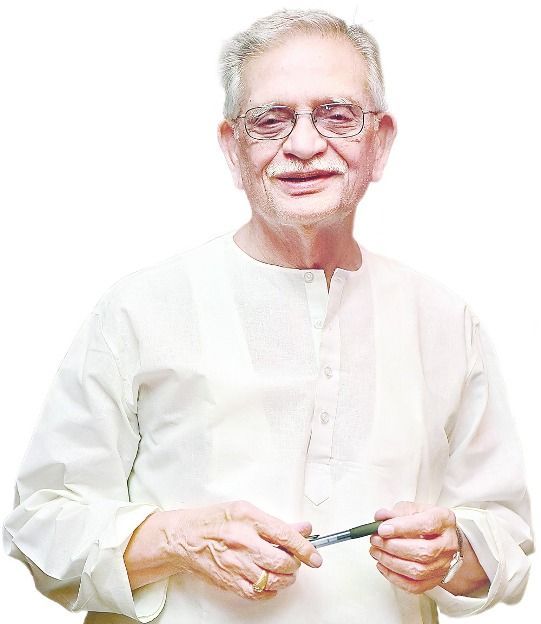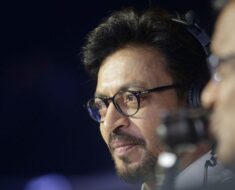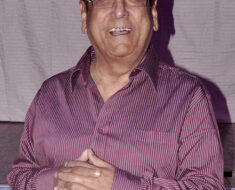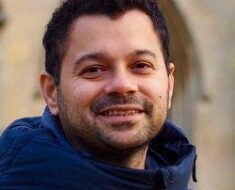Gulzar, a celebrated Indian poet, lyricist, and film director, is a true icon of Indian cinema. His contributions to the world of art and culture are immeasurable, leaving an indelible mark on generations.
Wiki/Biography
Sampooran Singh Kalra, known as Gulzar, was born on Saturday, 18 August 1934 (age 88 years as of 2022) in Dina, Jhelum District, Punjab, British India (now Pakistan). His zodiac sign is Leo. He received his early education at a local school in his Pakistani village. The 1947 partition forced his family’s relocation to Delhi, where he continued his schooling at The Delhi United Christian School. They settled in Delhi’s Sabzi Mandi area, and he took on various jobs to support his family.
Later, he attended St. Stephen’s College in Delhi before his father sent him to Mumbai to pursue his career aspirations. To survive in Mumbai, Gulzar held several odd jobs, including working as a mechanic and supervisor at Vichare Motors on Bellasis Road. He painted damaged cars, a task he enjoyed as it allowed time for his passions: reading, writing, attending college, and engaging with the Progressive Writers’ Association (PWA).
He found mentorship in the renowned Pakistani poet, Ahmad Nadeem Qasmi.
Physical Appearance
- Height (approx.): 5′ 6″
- Eye Colour: Dark Brown
- Hair Colour: White
Family, Caste & Wife
Gulzar hails from a Kalra Sikh family. His father was Makhan Singh Kalra, and his mother was Sujaan Kaur. His father had three marriages, resulting in several step-siblings. One of his elder brothers held an MA in Literature, providing intellectual companionship.
He married Rakhee Gulzar on 15 May 1973. Their daughter, Meghna Gulzar (Bosky), is a successful film director, producer, and writer. The couple separated when Meghna was just a year old.
Career
As a Lyricist
Gulzar’s involvement with the PWA introduced him to influential figures like Shailendra and Bimal Roy, who encouraged him to pursue a career in films. He began his journey under the guidance of directors Bimal Roy and Hrishikesh Mukherjee, starting with the film “Kabuliwala (1961).” He gained wider recognition after contributing lyrics to “Bandini (1963),” specifically the song “Mora Gora Ang Lai Le.”
His work on “Khamoshi (1969),” particularly the song “Humne Dekhi Hai Un Aankhon Ki Mehekti Khushboo,” solidified his reputation. His prolific career includes writing songs for numerous iconic films.
As a Director
Gulzar made his directorial debut with “Mere Apne” in 1971. His filmography includes notable films like “Parichay (1972),” “Koshish (1972),” “Aandhi (1975),” “Mausam (1975),” “Libaas (1988),” and “Maachis (1996).” His last directorial venture was “Hu Tu Tu (1999).”
As a Poet/Writer
Gulzar’s poetry encompasses Hindi, Urdu, Punjabi, and various Hindi dialects. His distinctive Triveni-style stanzas are showcased in collections like “Raat Pashminey Ki,” “Chand Pukhraaj Ka,” and “Pandrah Paanch Pachattar.” Beyond poetry, he’s authored short story collections (“Raavi Paar”) and novels (“Two”), demonstrating his versatility.
In Television
Gulzar’s television work includes lyrics for the Hindi dub of “Fushigi no Kuni no Alice,” the creation and production of “Mirza Ghalib (1988),” and his directorial debut with the children’s puppet series “Potli Baba Ki (1991).” He also contributed to the title tracks of popular children’s shows like “Son Pari” and “Motu Patlu.”
Controversies
A public exchange with Chetan Bhagat regarding the poetic nuances of “Kajra Re” and the controversy surrounding his film “Aandhi” (1975), which was perceived to resemble the life of Indira Gandhi during the Emergency, highlight some instances where his work sparked public discussion.
Awards & Honours
Gulzar has received numerous prestigious awards and accolades throughout his illustrious career. Some notable awards are listed below:
| Award | Year | Category/Film |
|---|---|---|
| Dadasaheb Phalke Award | 2013 | Lifetime Achievement |
| Grammy Award | 2010 | Best Song Written for Visual Media (“Jai Ho,” Slumdog Millionaire) |
| Academy Award | 2008 | Best Original Song (“Jai Ho,” Slumdog Millionaire) |
| Padma Bhushan | 2004 | Civilian Award |
| Sahitya Akademi Award | 2002 | For “Dhuan” (short stories in Urdu) |
Address
Boskyana, 65, Nargis Dutt Rd, Pali Hill, Mumbai, Maharashtra 400050
Favourite Things
- Colour: White
- Actress: Meena Kumari
- Singers: Kishore Kumar, Lata Mangeshkar, Mohit Chauhan, Rekha Bhardwaj
- Poets: Mirza Ghalib, Rabindranath Tagore, Khwaja Ghulam Farid, Bulleh Shah, Waris Shah
Signature
[Space for signature image]
Facts
Gulzar enjoys sketching, reading, writing, and traveling. His early love for literature stemmed from a small bookstore near his Delhi home, where he borrowed detective novels. His father initially disapproved of his writing aspirations. His Urdu teacher, Mujeebur Rahman, nurtured his passion for Urdu poetry. He wasn’t academically strong, with mathematics being his least favorite subject.
His elder brother initially pushed him towards a career in CA or the Navy, but Gulzar’s dislike for uniforms led him to Mumbai. He initially used the pen name “Gulzar Deenvi.” He contributed two songs to the 1971 film “Guddi,” including “Humko Man Ki Shakti Dena,” still recited as a prayer in many schools. His association with the Indian People’s Theatre Association (IPTA) deepened his artistic development.
He initially aspired to be a teacher to balance writing and reading. He has a strong connection to Bengali culture, learning the language to better appreciate Rabindranath Tagore’s work. He considers Bimal Roy and Hrishikesh Mukherjee his mentors. Many of his works reflect the trauma of the Partition of India, including his compilation “Footprints on Zero Line.”
His interests also extend to lawn tennis, winning a local club trophy in 2015. His songs “Ay Hairathe Aashiqui” and “Chaiyya Chaiyya” draw inspiration from Amir Khusrow and Bulle Shah, respectively. His film “Angoor (1982)” is an adaptation of Shakespeare’s “The Comedy of Errors.” He penned the anthem “Nazar Main Rehte Ho” for the “Aman ki Asha” peace campaign.
His love for white clothing stems from his college days. He reveals that he has never worn pajamas, preferring trousers and occasionally a traditional shalwar. The musician Sting has inspired much of his work. He has also collaborated with Karadi Tales, narrating audiobooks.
His life has been documented in various biographies, including those by Nasreen Munni Kabir, Saibal Chatterjee, and his daughter Meghna Gulzar. Ahmad Nadeem Qasmi was a key mentor, even publishing Gulzar’s early poems. Gulzar famously didn’t attend the Academy Awards to receive his Oscar for “Jai Ho” due to prior commitments.
Beyond his writing prowess, Gulzar is also a skilled artist, creating sketches in his free time. He served as the Chancellor of Assam University and created a sculpture of Mirza Ghalib for his home. He plays the sitar and wrote the song “Chaddi Pahen Ke Phool Khila Hai” for the “Jungle Book” series.







